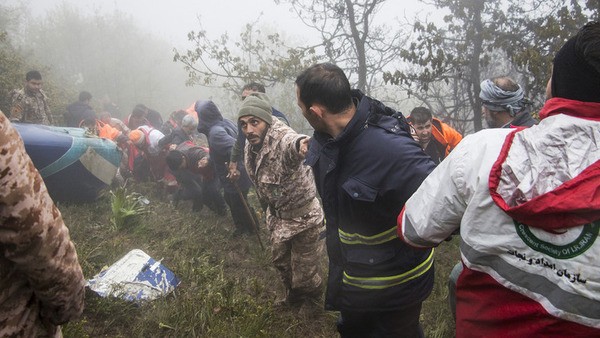Iran’s Plan to Strike Back Against the U.S.
Iran’s Military Preparations Following U.S. Attacks
Loading...

The tragic helicopter crash resulting in the death of Ebrahim Raisi provided European officials with an opportunity for rhetorical maneuvering and political posturing.
Spare a thought for Janez Lenarcic, the European Union’s commissioner for humanitarian aid and crisis management. Typically, Lenarcic plays a supporting role, echoing EU chief diplomat Josep Borrell's statements, most recently regarding the humanitarian crisis in Gaza. However, when Iranian President Ebrahim Raisi's helicopter crashed near the Iran-Azerbaijan border and the Iranian government sought EU assistance for the rescue mission, Lenarcic stepped into the spotlight.
Upon the Iranian request, Lenarcic activated the EU's Copernicus rapid response mapping service to aid in the search and rescue effort. Yet, his use of the hashtag "#EUSolidarity" in his social media post sparked controversy among EU officials, prompting accusations of virtue-signaling.
Dutch MEP Assita Kanko criticized Lenarcic's actions, questioning whether saving the Iranian president should take precedence over supporting Iranian women allegedly victimized by the regime. Some suggested that by refusing to facilitate the rescue, the EU would effectively be endorsing capital punishment without due process. Others, like German Bundestag member Marie-Agnes Strack-Zimmermann, demanded an explanation for what they saw as misguided solidarity with Iran.
Lenarcic defended his decision, stating that providing satellite mapping for a search and rescue operation was a humanitarian act devoid of political support for any regime. However, some EU officials continued to push their own agendas, diverting attention from the immediate crisis.
The discourse around the helicopter crash devolved into a competition of political posturing and virtue signaling. Instead of focusing on the lives at stake, some EU officials used the incident to advocate for unrelated causes, such as prioritizing visas for certain individuals or condemning Iran's actions in other geopolitical contexts.
The response from EU officials led to comparisons with reality TV drama, with their petty squabbles overshadowing the gravity of the situation. In the midst of the crisis, it seemed that some were more concerned with scoring political points than with the lives in jeopardy.
Iran’s Military Preparations Following U.S. Attacks
Troops remain in five strategic locations, raising fears of renewed tensions and long-term occupation.
Opposition forces have taken control of the capital after a significant offensive. Here is how it unravelled.
